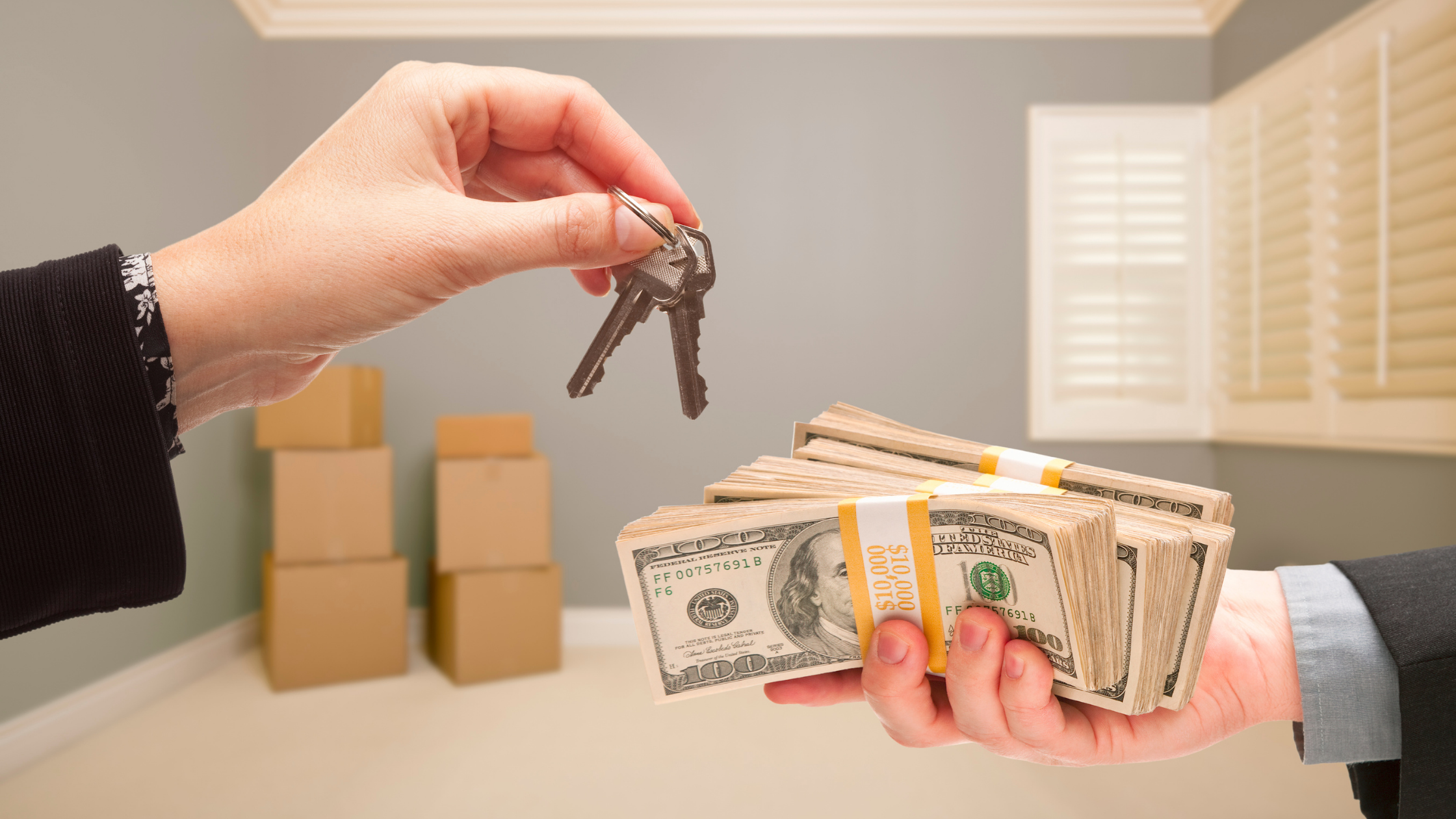Someone Wants To Buy My House With Cash (What To Watch Out For)
March 10, 2021
A cash offer on a house is when a buyer has money in the bank that they can use to purchase a property without any financing or a loan. Selling a house for cash is a nontraditional way of making a real estate transaction. It’s usually a quicker sale without a lender or a bank to enforce guidelines and regulations. The freedom from the typical steps in selling a house can be liberating but it can also be dangerous if you don’t know what to look for in a cash buyer.
The cash-for-house marketplace is filled with many different scams that can put sellers at risk of losing a lot of their money. Protecting yourself during the sale is essential and there are many precautions sellers can take to ensure they find the right cash buyer. Here are five tips to protect yourself when selling your house for cash.
What is the “We Buy Homes” Scam?
There are many scams in the cash-for-house market but “We Buy Houses” scams are one of the most common for sellers to run into. The scam starts with post signs and postcards posing as a company that buys homes for cash. Homeowners respond to the advertisement and the scammers lure sellers to give them their personal information, money, or title of the property.
Scams can leave sellers on the hook to pay thousands of dollars in mortgage payments or stuck in a contract that they can’t get out of. It’s important to do your research and take the necessary steps to avoid these scams.

5 Ways To Protect Yourself From Cash Home Buying Scams
There are ways that you can protect yourself when selling your house for cash. Legitimate cash buyers should be easy to work with and transparent when it comes to their background. Here are nine best practices to help you stay safe and secure throughout the home-selling process.
1. Hiring a Good Real Estate Agent
One of the best ways to protect yourself is to work with a real estate expert. An excellent real estate agent will have the resources and experience to help you navigate a safe cash sale. They are well-versed in real estate contracts and will spot any terms that are questionable.
Most importantly, great agents know the signs of a suspicious cash home buyer and can identify when something is not right. However, not all agents are created equal and there are many who could be better at what they do. If you want a quick way to find a great real estate agent, then work with a Negotiator.
Negotiators are top real estate agents in the USA who were handpicked to join an exclusive real estate agent organization. They have an unrivaled devotion to their clients and will go the extra mile to ensure they get the best possible deal.
Search for a Negotiator near you here.
2. Cash Buyer Has a Suspicious Background
The most suspicious cash home buyers have a background that is unclear or hidden. Before you sign with a cash buyer, look into their background and find out as much information about them as possible. Buyers without references or a history of successful real estate transactions should be a major red flag. If you can’t find information on their background, it’s best to move on and look for another buyer who is more transparent with their information.
Buyers from foreign countries can also be a red flag. Scammers sometimes use distance as a way of being unavailable to see the property or meet in person. Foreign buyers can pose as anyone in a home sale but sometimes there are inconsistencies.
If there is a discrepancy between the buyer’s location, the source of funding for the property, and the physical address the company or individual who will own the title is located, then further investigation is necessary before closing.
3. Don’t Sign Over The Deed Early
One of the main ways a scammer will try to take advantage of a seller is by asking them to sign over the deed before they have officially paid. This allows the scammer to take ownership of the property without actually paying for it. They can even take out the equity in the property, leaving you with the remaining mortgage payments to pay and no deed.
These cash scams usually take place with homeowners who have defaulted or are close to foreclosure. The scammer enters, presenting themselves as a savior who offers to pay off the existing loan on your home. However, in exchange for this service, they require you to sign over the deed of your house. Once the title is under their fraudulent name, they withdraw all equity from it and leave you financially responsible for paying back the mortgage.
4. Rushing The Sale
A potential buyer who is a little too eager to close the sale may have an ulterior motive. Purchasing a property is a huge decision and buyers should approach it with due diligence. If a buyer is rushing the process or pressuring the seller to close quickly, this could be a sign of a scammer trying to take advantage of the seller before they figure out what is happening.
It’s also suspicious if the buyer or real estate investor doesn’t want to see the house in person. Legitimate buyers will always want to investigate the property they are making an investment in.
5. Lack of Funds
The majority of cash-for-house scams are done by scammers who have neither the means nor intention to purchase a property. Rather, they aim to take advantage of unsuspecting sellers through deceitful ways. One of the biggest red flags that home sellers can look for is a lack of funds from the buyer.
When it comes to cash home buyers, bank statements are essential in verifying that they have the funds necessary to go through with a purchase. However, there is always a risk of scammers who can forge these documents. To protect themselves, homeowners should contact the banks directly to verify any bank statements they are presented with.
A common cash-for-house scam is when the buyer “overpays” for the earnest money deposit and requests that the seller wire transfers the overpayment back to them. When the deposit check finally clears, however, it bounces and the money sent back to the buyer is gone. As a safety measure for sellers, it is recommended that they ask for a deposit that is 5% to 20% of the purchase price prior to agreeing with the sale. It’s important to wait for all payments to clear before proceeding.
Are Cash Offers For Houses Legit?
Selling a home for cash can be beneficial for homeowners if it is done with legitimate buyers. Unfortunately, fraudsters are out there targeting unknowing homeowners. Taking the appropriate safety measures and conducting thorough research is necessary for home sellers to avoid falling victim to a scammer.
Working with real estate experts like Negotiators are a great resource for home sellers to safely and effectively sell their home for cash. They can answer any questions you may have and guide you through the home-selling process.

